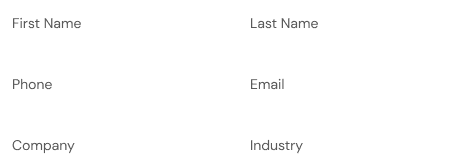
Employee retention is one of the top priorities for business owners, managers, and executives across all industries. However, in the age of remote work, it is even more vital for companies to implement strategies and solutions aimed at helping their employees feel that sense of security, trust, and loyalty.
Employee retention is a big, expensive problem for businesses. To replace one good employee, US employers spend an average of 33% of a worker's annual salary. That’s a lot of money and time invested. The good news is that employee retention is not cut from stone and we can do something about it. As remote work becomes more prevalent, companies have a variety of ways to approach employee retention and we’re going to talk about them in this article.
1. Create a smart onboarding process
First and foremost, you need to outline the benefits of remote work—and make sure your team is aware of them. Rather than wooing them with promises your company can afford to fulfill, be transparent as possible. You might also want to provide extra perks for employees who choose remote work, such as offering flexible scheduling. This will help them feel like they're getting something in return for working remotely, and it'll encourage your employees to stick around with your company.
Moreover, It can be difficult for new employees who don't understand all the ins and outs of remote work. They may also have trouble adjusting if they've never done it before. Give them time to get used to your company culture, and don't be afraid to have several meetings to help get everyone up to speed on how you do business.

2. Develop talent and career development programs
Developing a talent and career development program is not an easy task, as it involves many moving parts. The first and most important aspect of your program is to define the roles of each part of your team and to have a plan for helping them grow into their roles. If you can't define clear roles, then you will have a hard time developing the talent within your organization.
You should also gather feedback from all levels of your organization and making sure that your managers and supervisors are on board with this process will help ensure its effectiveness. Tying it back to company culture as well as to the vision of the company will also be key in creating a good talent and career development program for your remote organization.
If employees are part of something greater than just themselves, then they will be more likely to take on new challenges, which will help them grow both professionally and personally.
3. Improve remote company culture
There's a lot of benefits to working remotely and not in an office, but one of the biggest downsides is that it can be hard to build a sense of community. Trouble forming bonds with remote colleagues can lead to some very real problems when it comes to motivation, productivity, and company culture.
To make the most out of your time working remotely, it's important to keep your team motivated, happy, and feeling like they are part of something bigger than themselves. Don't let your remote employees feel isolated or alone. Find ways to keep them engaged in the company culture, from regular phone calls to team outings. Remote workers can feel disconnected from their colleagues and that can be detrimental to morale.
4. Ensure timely and consistent pay for your remote workers
If you aren't paying your remote workers on time, or worse still paying them late, then this will have an impact on their lives outside of work.
Think about it: You wouldn't want to be late with a payment to a landlord or utility company, so why would you do it to your remote workers? Being late with payments causes unnecessary stress, which can have a knock-on effect on other areas of life if it becomes a habit. Things like this can ultimately lead to people leaving a job, which is something no business wants to happen.

To do this, you must create an effective payroll system that works well with your remote setup. You should understand your bank partner’s policy on sending overseas payments to avoid any issues and delays. You can also partner with agencies like Remotify that offers payroll services.
To understand more about remote payroll systems, read this article.
5. Implement recognition and rewards systems
There are many different ways to design a recognition and rewards system for your remote employees. The key is to come up with a system that is based on the people you are trying to reward and tailor it appropriately for them. It is also important that you understand why you are doing this. If the purpose of a recognition program is to improve business performance, then having some kind of tangible prize at the end will help keep people motivated and engaged. The best type of recognition system should be one that encourages participation and contribution, as well as rewards individual effort.
However, tangible rewards are not always necessary. While it is effective for some, there are also times when monetary incentives can negatively impact motivation. Even worse, they can create a competitive environment in your team which may damage collaboration and trust. Instead of monetary rewards, you may consider other things such as long days off or time in lieu, or vouchers for food or leisure activities. These provide an opportunity for team members to go out together, rather than competing against each other for prizes.
It is also important to think about the frequency of your recognition programs. Two times per year is probably too infrequent; you might want to consider monthly or weekly recognition programs instead
Conclusion
As a business owner, you need to consider the reasons why your employees are leaving, and then implement management strategies to retain them. If you are considering a remote workforce as part of your business plan, you must consider the unique challenges and opportunities of remote work. With this, you must develop a successful strategy for ensuring employee success.
This is why at Remotify, we value remote employee engagement with companies and we help them build a great work environment and culture. This is through our Employer of Record services that include HR tasks, payroll management, and team engagement. To know more about this, you may visit this page or contact us at hello@remotify.ph.
Jump straight to a key chapter
Spending Too
Much Time
Onboarding?
your remote hiring in the
Philippines, excellently.
Say Goodbye to High Costs!
Request Your Free Consultation Today andSave a Massive 70% on Your Workforce!

Ready to thrive in a remote-first work environment?


